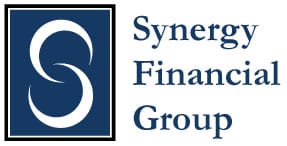Buying a home vs. renting is a big decision that takes careful consideration, as most mortgage consultants will agree. But the rewards of homeownership are great. For many years, purchasing real estate has been considered an extremely profitable investment. It is an achievement that offers a sense of pride, financial stability, and potential tax advantages.
Yes, there are certain responsibilities associated with owning a home. Landlords will often argue the benefits of renting, and for obvious reason. If you are renting, you’re helping them make their mortgage payment.
The numbers are staggering if you look at it this way. If you are paying $1,000 per month for an apartment, and you know your rent will increase 5% every year, then over the next five years you will pay your landlord $66,309. If you are currently renting a house, you may be paying much more than that each month. Either way, you gain no equity by shelling out this monthly housing expense and you certainly won’t benefit when the property value goes up!
However, if you were to purchase your own home or condominium, you would be on your way toward building equity. By choosing a fixed-rate loan program, you can have the comfort of knowing that your monthly mortgage payment will never go up. In fact, you would have the option of refinancing to a lower interest rate at some point in the future should interest rates drop lower than the rate you’d currently be locked in at, and this would cause your monthly mortgage commitment to go down.
And not only would your own home give you added space, your own back yard, and overall privacy—homeownership would also give you some tax advantages. Depending on your tax bracket, owning a home is often less expensive than renting after taxes. Interest payments on a mortgage below $1 million are tax-deductible, and your mortgage consultant should help you evaluate the tax advantages of various loan scenarios, and share this information with your tax consultant to glean feedback on your behalf.
To find the loan program that is right for you, your mortgage consultant will need to evaluate your monthly household income, current assets, and savings, as well as any monthly obligations you may have for credit card payments, car payments, child support, etc. These prequalification factors, along with the report of your credit score, will determine how much house you can afford and what interest rate you will pay for financing. It is also important to let your mortgage consultant know what your future goals are because this will help narrow down which loan option is the best fit for your long-term needs.
There are many different types of loan programs available, including “low” down payment mortgage programs. The most common and beneficial loan for
people buying their first home is the FHA loan, which only requires a 3.5% down payment. In addition, FHA allows a seller to cover up to 6% of a buyer’s closing costs which really helps decrease the amount of money it takes to buy a home. Many people also don’t know that FHA allows the lowest credit scores of any loan available today, only needing a 640 score in most cases.
If there is any time to buy it is NOW! Why? Because home prices are low today. Low home values are surely not good for people selling homes but they are great news for people wanting to buy a home. Don’t miss this opportunity to take advantage of the current market before home values rise.
We are ready to help you find the best possible mortgage solution for your situation. Contact Sheila Siegel at Synergy Financial Group today.






